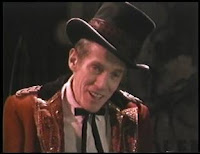 Why is learning about music, playing and instrument or simply listening to music so important for actors?
Why is learning about music, playing and instrument or simply listening to music so important for actors?
Music is the foundation for almost every art, in theory and in truth. Without music we would be missing one of life's greatest joys. Movies would lose half of their emotional connectivity with an audience. "Jaws" without music–unimaginable. And, life in general would be missing those little memory triggers of our past.
But how are music and acting connected?
For actors, music has another special purpose, and that is to enlighten the actor to the use of space, metering, projection, timing, delivery, fluidity and natural body movement. Music's structure can provide an actor with a 4th dimension of references.
Any actor, no matter their level of experience or skill, can benefit from taking vocal lessons or learning to play an instrument. And, if you can play in a band, it will teach invaluable lessons about timing, waiting for the right moment and improvisation. It awakens the inner clock in all of us and provides us with the necessary rhythm actors need to bring depth and substance to the life of their character.
As an actor, who plays drums I learned about timing, waiting for the right moment to say the word or lines, just like a flam on my snare – or the dramatic punctuation in a powerful sentence, just as if it was a cymbal crash at the end of a bar. I always make those connections because music provides me a frame-of-reference for much in my life as a creative being. It even goes beyond acting to almost everything I do on a daily basis.
Playing in bands, with other musicians has been invaluable. Just like playing in an actin ensemble, a string ensemble or band taught me about improvisation and how to allow others to riff and jam with me so that they could give and take and riff right back. In dialogue on stage or on film we talk and listen and pause, and then emote or burst out in anger– there is rhythm and there are beats in every line–music is right there, in every single exchange. Words and the way we say them can be musical and even lyrical and often are. if you're a musician you're likely to notice that reference daily.
It's wonderful to see how life relates to music and vice-versa in the most elemental ways. I've always thought that the bass sound is the earth, grounded and strong– the mids are life, you and I and the people on earth, and the highs are the sun and the sky–the treble, if you will. Every play has lows, mids and highs. The way it's written is a landscape that has a beginning a middle and an end. Like a song, it has an intro, a chorus a guitar solo, a crescendo, and finally an end. Taking you on a journey, and that journey we go on in a movie or Play is much like a song in almost every way.
When we act in plays or on film if we understand music, then it opens our eyes to how a production or a movie is very much like an orchestra– each musician playing a part so that in the end, you have a final product, a single sound, a single message, derived from the efforts of many. That relationship teaches that you are a simply a cog in a wheel on stage as an actor– it enlightens you to how others depend on you, and how acting is really another form of singing a call and response and how you may be the drummer or guitarist in the band, or even the lead singer.
Even if you simply listen to music, understanding it's structure, you can learn so much about how it fits into the universe of acting. Listen to "Here Comes the Sun" by the Beatles.
Think about how that song starts out with a simple melody and hook, then builds into a full chorus...the song develops verse-by-verse, adding new instruments as it moves along–literally like the sun breaking through the clouds. Music opens up your mind and creates visual connectivity between words and sounds and also trains your brain to be creatively visual.
I encourage everyone I meet in acting, dancing or comedy to learn an instrument or take voice lessons. Look for a vocal coach that specializes in working with Actors or Dancers, as the approach and techniques are slightly different, especially in breathing. You'll see a marked difference in your approach, rhythm and confidence, and you'll land some great roles!
Paul Brighton






